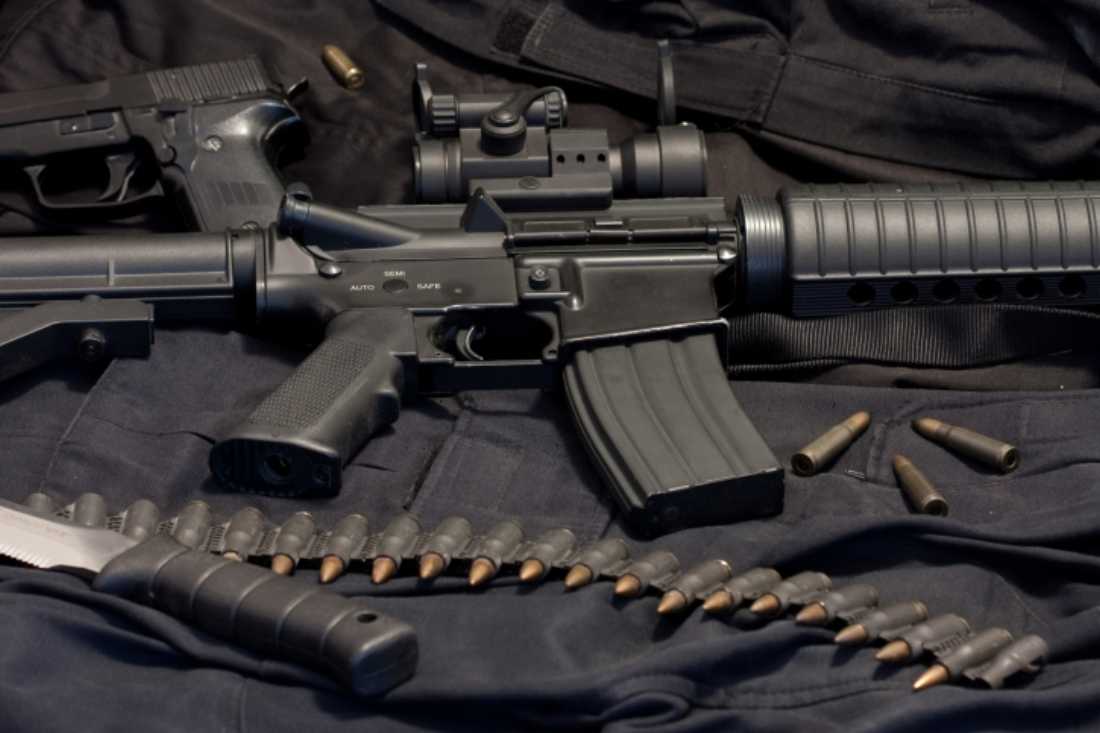Here’s an interesting statistic: The second-highest rate of gun ownership in the world is in Yemen, a largely tribal, extremely poor country. The highest is in the United States, where there are almost as many guns as people: around 300 million guns for 311 million human beings.
In the past 25 years, the proportion of Americans who own guns has fallen from about one in three to only one in five. However, the U.S. is a rich country, and the average American gun owner has four or five firearms — which he or she is utterly determined to keep, no matter what happens.
What has just happened in Sandy Hook, Conn., was the seventh massacre this year in which four or more people were killed by a lone gunman. The fact that this time 20 of the victims were little girls and boys has caused a wave of revulsion in the United States, but it is not likely to lead to new laws on gun controls. It’s not even clear that new laws would help.
Half the firearms in the entire world are in the U.S. The rate of murders by gunfire in the United States is almost 20 times higher than the average rate in 22 other populous, high-income countries with similar rates of other crimes. There is clearly a connection between these two facts, but it is not necessarily simple cause and effect.
For instance: The American rate for murders of all kinds — shooting, strangling, stabbing, poisoning, pushing people under buses, etc. — is seven times higher than it is in those other 22 rich countries. It can’t just be guns.
Steven Pinker’s book The Better Angels of Our Nature is about the long-term decline in violence of every kind in the world. But, as he notes, murder rates have not fallen in the United States in the past century. (Most people don’t believe that violence is in decline anywhere, let alone almost everywhere. That’s why he wrote the book.) He suggests an explanation for the American exception.
In medieval Europe, where everybody from warlords to peasants was on his own when it came to defending property, rights, and “honor,” the murder rates were astronomically high: 110 people per 100,000 in 14th-century Oxford, for example. It was at least as high in colonial New England in the early 17th century.
By the mid-20th century, the murder rate in England had fallen more than a hundredfold. In London, it was less than one person per 100,000 per year, about the same as in most Western European countries. The U.S. murder rate is still around seven people per 100,000 per year. Why?
Pinker quotes historian Pieter Spierenburg’s provocative suggestion that “democracy came too early” to America. In European countries, the population was gradually disarmed by the centralized states as they put an end to feudal anarchy. Only much later, after people had already learned to trust the law to defend their property and their safety, did democracy arrive there.
The same thing happened in most other parts of the world, although in many cases it was the colonial power that disarmed the people and instituted the rule of law. But in the U.S., where the democratic revolution came over two centuries ago, the people took over the state before they had been disarmed. They kept their weapons — and their old attitudes.
Indeed, in large parts of the United States, particularly the Southeast and Southwest, it is still accepted that an individual may choose to defend his rights and interests by violence rather than seeking justice through the law. The homicide rate in New England is less than three people per 100,000 per year; in Louisiana it is more than 14.
None of this explains the specific phenomenon of gun massacres by deranged individuals, who are presumably present at the same rate in every country. It’s just that in the U.S., it’s easier for such people to get access to rapid-fire weapons.
But only one in 300 murders in the U.S. happens in that kind of massacre. Most are simply due to quarrels between individuals, often in the same family. Private acts of violence to obtain “justice,” with or without guns, are deeply entrenched in American culture, and the murder rate would stay extraordinarily high even if there were no guns.
The presence of guns everywhere sends the murder rate even higher. But since the popular attitudes toward violence have not changed, that is not going to change either.
Independent journalist Gwynne Dyer’s work is published in 45 countries.













Look, white conservative Americans must have their guns.
They have to maintain their long, indefensible history of ‘killing some shit’ at every opportunity.
You are a MORON!
Fact: In 1994, before the Federal “assault weapons ban,” you were eleven (11) times more likely to be beaten to death than to be killed by an “assault weapon.”
Fact: Guns prevent an estimated 2.5 million crimes a year or 6,849 every day. Often the gun is never fired and no blood (including the criminal’s) is shed.
Fact: Every year, people in the United States use guns to defend themselves against criminals an estimated 2,500,000 times – more than 6,500 people a day, or once every 13 seconds. Of these instances, 15.6% of the people using firearms defensively stated that they “almost certainly” saved their lives by doing so.
Fact: 54% of these deaths are suicides(80% in Canada). Numerous studies have shown that the presence or absence of a firearm does not change the overall (i.e., gun plus non-gun) suicide rate.
Fact: Guns are used for self-defense 2,500,000 times a year in the United States.
71% of gunshot victims had previous arrest records.
• 64% had been convicted of a crime.
• Each had an average of 11 prior arrests.62,63
• 63% of victims have criminal histories and 73% of the time they know
their assailant (twice as often as victims without criminal histories).64
In 1911, Turkey established gun control. Subsequently, from 1915 to 1917, 1.5-million
Armenians, deprived of the means to defend themselves, were rounded up and killed.
In 1929, the Soviet Union established gun control. Then, from 1929 to 1953,
approximately 20-millon dissidents were rounded up and killed.
In 1938 Germany established gun control. From 1939 to 1945 over 13-million Jews,
gypsies, homosexuals, mentally ill, union leaders, Catholics and others, unable to fire a
shot in protest, were rounded up and killed.
In 1935, China established gun control. Subsequently, between 1948 and 1952, over 20-
million dissidents were rounded up and killed.
In 1956, Cambodia enshrined gun control. In just two years (1975-1977) over one million
“educated” people were rounded up and killed.
In 1964, Guatemala locked in gun control. From 1964 to 1981, over 100,000 Mayan
Indians were rounded up and killed as a result of their inability to defend themselves.
In 1970, Uganda embraced gun control. Over the next nine years over 300,000 Christians
were rounded up and killed.
Over 56-million people have died because of gun control in the last century.
DAMN!! That pretty much clears that up! Thanks for the info.
Ok, lets make this clear. If white man gets to keep his gun, and use it on unwelcome minority’s and people that aren’t american those rates would dramatically drop. Wish we could starting using the FEMA 500,000 plastic coffins (google it) and turn this turd of a country around. People need to grow a pair of balls and start a citizen unrest and take this place back. If not you idiots that aren’t americans are going to continue to run it into the ground. So I hope you own a piece of property outside of the US (I do). Nice talking to ya…
If ‘ONE’ person on that campus had a CCW, the death toll might have been only two or three including the loony doing the shooting. So let’s all join hands and sing ‘Kubaya” and take away everyones gun. Come get mine, PLEASE.
Gynne Dyer’s reference to Pinker’s The Better Angels of Our Nature, leads me to believe she may buy into many of his points. While I appreciate any attempt to take a fresh look at old issues, I fear many of Steven’s points are a bit off the mark. Particularly his quote from Pieter Spierenburg, who seems to have gotten the cart before the horse. He seems to assert that in Europe, trust in authority, arrived after some governmental competence was achieved, and democracy followed. Whereas he contrasts the USA, as quickly gaining democracy and simply keeping the old, and by implication, unnecessary distrust of authority. I fail to see that difference. The revolutionary and democratic history of France for example is remarkably similar to the USA. As is most of the United Kingdom, if you look carefuly. Similarly, Denmark, Holland, Finland, Poland and even Estonia, have had to fight an incompetent government to gain a democratic footing.
It would seem that the trust-of-authority itself is the driving force behind a feeling that one needs guns for self defense. Only a government that behaves as though it holds it’s citizens best intreats as a high priority will gain their trust. The citizens opinion, not yours, nor the opinion any one else. Only when you see a government comply with it’s citizens view of Justice, will you see the building of that trust.
Oh, and “FEDUP”, Ad Hominum attacks DO NOT help your cause. Emulate Chris and always check the accuracy of your “facts”.